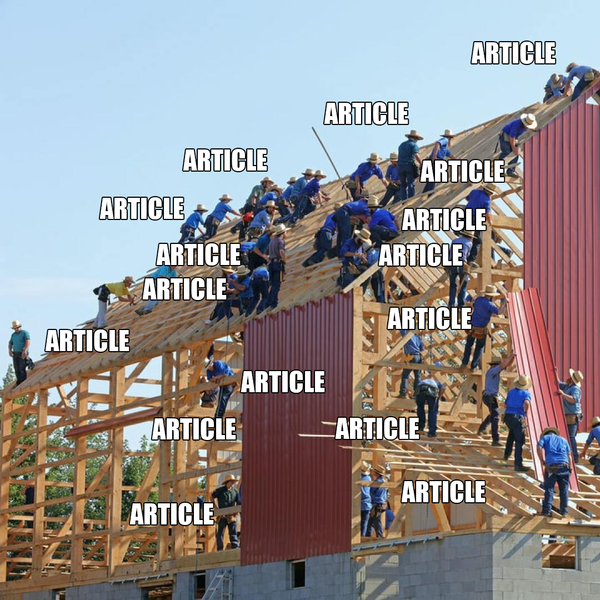Over the past year, I wrote an article every week and sent it to a growing list of curious readers. The topics were eclectic, sometimes meandering, but always related to a simple question: how do you come up with a good idea? We're not ready to answer it yet, because this question is far more complex than it seems.
What defines a good idea? Who decides if it is different from a regular idea? Is the process of idea generation different depending on the outcome? Isn't idea generating just thinking? Can you teach someone to think? I believe we can find answers to these questions, and that's my next project.
I've thought a lot about what to do with these articles. As you all know, I believe in building systems to accomplish your goals more quickly. But what do you do if you don't have a specific goal? I began this project as a way to think in public. And it steadily grew into [almost] all of the parts to answer the simple question.
Also, over the past year, I explored several different platforms for teaching data science. Ultimately, I built one from scratch. The goal is to allow anyone, whether enrolled in a course or not, to learn these powerful tools. While it's still in beta, has many placeholders, and still could change, check out an early version if you're curious. So what does this have to do with thinking? I've decided to build a course in "coming up with a good idea" using the same platform in the screenshot.

Richard Feynman, physicist and Nobel laureate, famously said,
If you want to master something, teach it
Indeed, teaching something is a way to clarify your understanding of a topic and highlight gaps in your knowledge. This Heureka Labs project started in the spirit of teaching — sharing what I learned along the way. Thus, it seems fitting and challenging to synthesize what I've learned by writing these articles into a "course"...loosely defined. I recently wrote that when you have an idea whose time is not yet ready, we wait. Conversely, nothing is more powerful than an idea whose time has come. Victor Hugo is known for that last one. So how do you come up with a good idea? Over the next several weeks, I will synthesize my rough notes and begin to answer that question, and share that process along the way.
